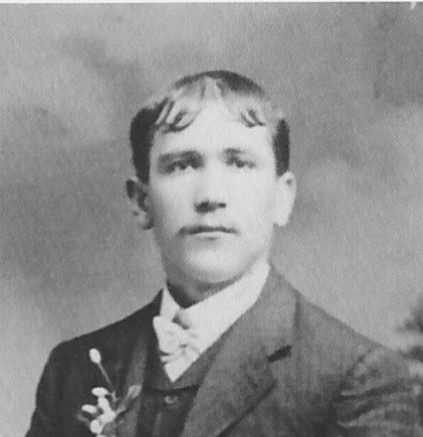-
Birth name
Koritár
-
Place of Birth
Komlóska, Hungary
-
Place of Death
Shamokin, PA
Born Jozsef Koritár in June 20, 1879 in Komlóska, Hungary, he was the second of nine children. His parents were András Koritár and Anna Magyar. They were Greek Catholic and likely Rusyn. Sometimes called Carpatho-Rusyn, they were an ethnic group that differed from the Magyars of Hungary. (Confusingly, Magyar is both an ethnicity and a common last name.) Joseph’s father, András, died in 1898. Two of his siblings died at less than a year of age. Two more died at less than five years old.
Joseph left for America soon after his father’s passing, arriving in New York on the SS Patricia on September 7, 1900. He and his friend Janos Lengyel travelled from Komlóska to Shamokin, Pennsylvania. They were likely recruited in Hungary by the coal mining companies as cheap labor. He had a ticket to Shamokin and $2 with him. Three of his brothers would later follow Joseph in immigrating; two stayed, one returned. But more on those folks later.
He starting working in the anthracite coal mines and settled in Marion Heights, Pennsylvania, a couple miles from Shamokin. Ellen Kerestesy arrived from Hungary on October 1, 1902, to help her father keep house. Ellen and Joseph grew up just a few miles apart in Hungary. They married in nearby Mount Carmel on June 11, 1904. Their wedding picture is the only known picture of Joseph. According to his WW I registration card, he had brown eyes, dark hair, and was of medium height and build. Unlike his new bride, Joseph could neither read nor write. He probably spoke only a smattering of English.
Babies quickly followed with John in 1905, Eleanor in 1906, and Joseph (Koley) in 1908, and George (Soapy) in 1910. They moved to a rental house on Coal street in Shamokin in 1911. Shortly after Peter was born in 1912, they purchased a house at 612 Bear Valley Ave in Shamokin with a mortgage of $800, which is about $25,000 today. Their string of boys followed with Stephen (Larry) in 1914 and Frank in 1917.
Joseph’s years of mining took a toll, and he developed black lung disease (aka coal workers’ pneumoconiosis). The disease does not kill you, but makes you susceptible to other ailments. After being confined to bedrest for a couple months, he died of tuberculosis on June 3, 1919. He left behind his wife and seven children.
Jozsef Koritár
(1879 - 1919)
